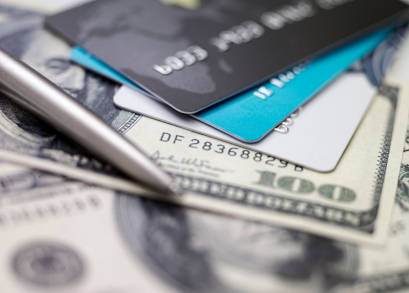A secured credit card is typically a good option for those who might have thin credit, or perhaps no credit.
Maybe you have bad credit because you’ve had credit problems in the past. Don‘t think that the entire world of credit is closed to you, because frankly nothing could be further from the truth.
A secured credit card is a card where you essentially put up cash as a deposit. Let’s say $500, or maybe even $1,000.
Whatever amount you turn over to a bank that is issuing you a secured credit card becomes your credit limit. If you put up $500, then you get a secured credit card issued to you in the amount of $500, which gives you a $500 limit.
This is very different, of course, than a traditional, unsecured credit card where you don’t have to put up any deposit at all. You might have an annual fee on a typical unsecured credit card, but you don’t have to put up cash as a deposit.
A secured credit card can work in your favor when you’re trying to build or rebuild your credit rating.
But you want to make sure that you only go with a company that actually reports your payment history and your credit‑paying track record to the credit bureaus (Experian, Equifax, and TransUnion).
Some companies are issuing secured cards, but they don’t report to the credit bureaus, and that won’t help your credit. So be sure to ask questions, and do your research.
Before you apply for any type of secured credit card, read the fine print thoroughly, and make sure you ask the question: “Do you report my payment history to the credit bureaus?” You want the answer to be a resounding YES to help you build your credit rating.
Secured credit cards can also help you reign in excess spending and stay within your budget.
You can’t go over the limit with a secured credit card (at least not with most of them) because they simply won’t approve your purchases if you spend in excess of the amount that you’ve deposited.
This is a good way to build credit, better establish credit, or perhaps rebuild credit after you’ve had problems.
So if you have little or no credit, or bad credit from your past circumstances, go ahead and get your secured credit card, and get back in the credit game.








